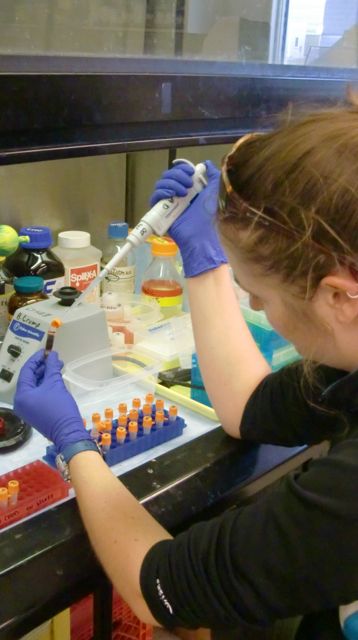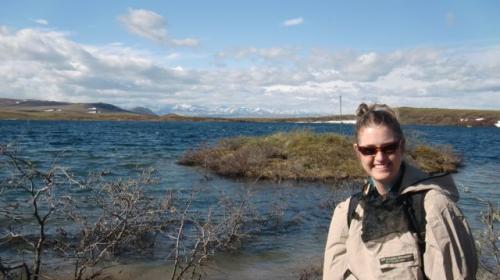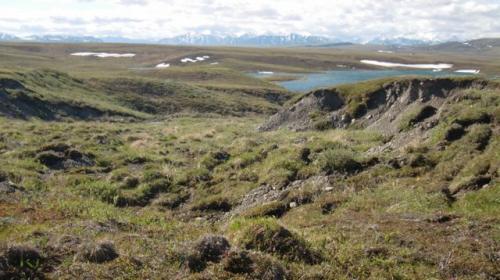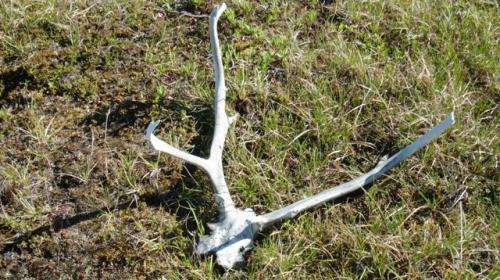Introducing Team Microbe!

Today was a busy day with both some field work collecting and filtering samples and lab work extracting DNA from collected samples. I plan to write more about those specific processes in an upcoming post.
So for now, here's the PI, or principal investigator Byron to tell you a little bit more about himself and his involvement in this project.
Species Journal

Today we took a helicopter and went out a lake called NE-14. It also has a thermokarst like Wolverine Lake, but it is older. It was interesting to see some of the differences in the terrain and the succession and changes in vegetation.

While I didn't see any new species today in their living form, we did find some remnants of an organism that does live around this area, caribou!


A Reminder
My PolarConnect event is coming up this Friday at 11:30 AKT [12:30pm PDT, 1:30pm MDT, 2:30pm CDT, 3:30pm EDT]. I would love to have all of you join in to learn more about my experience in the arctic and Byron's research. It is free and easy, for instructions click here!


Comments